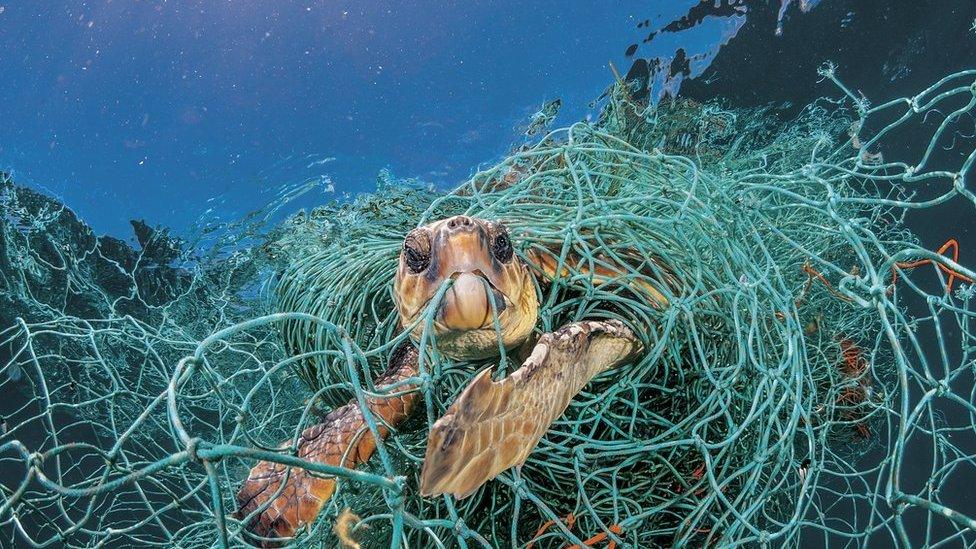Lidl bottom of recyclable packaging survey, says Which?
- Published
- comments
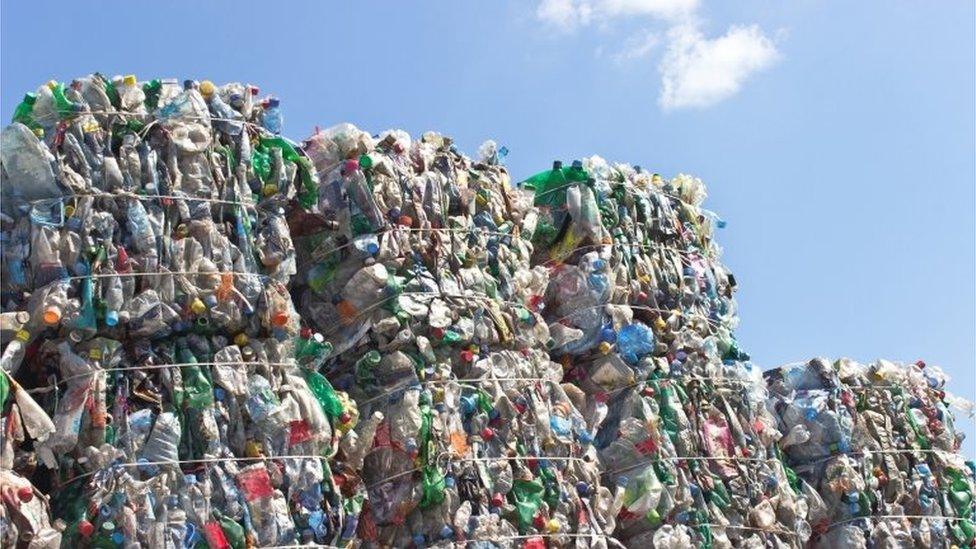
Up to a third of plastic packaging used in supermarkets is either difficult to recycle or not recyclable at all, a consumer group has said.
Consumer group Which? said that of 27 own-brand items at 10 big supermarkets, Lidl had the lowest proportion of easily recyclable packaging.
However Lidl said the survey did not represent the shop's product range.
Which? found 29% of packaging is likely to go to landfill and wants simple recycling labels to be made compulsory.
According to the report, 71% of packaging at Lidl was widely recyclable compared to 73% at Iceland, 75% at Sainsbury's and 81% in Morrisons.
Some products, such as easy peel oranges, were packaged in non-recyclable material regardless of the supermarket they came from.
However, a chocolate cake bought at Morrisons came with a widely recyclable box while a similar product at Lidl was made up of a non-recyclable film within a widely recyclable box with a non-recyclable window.
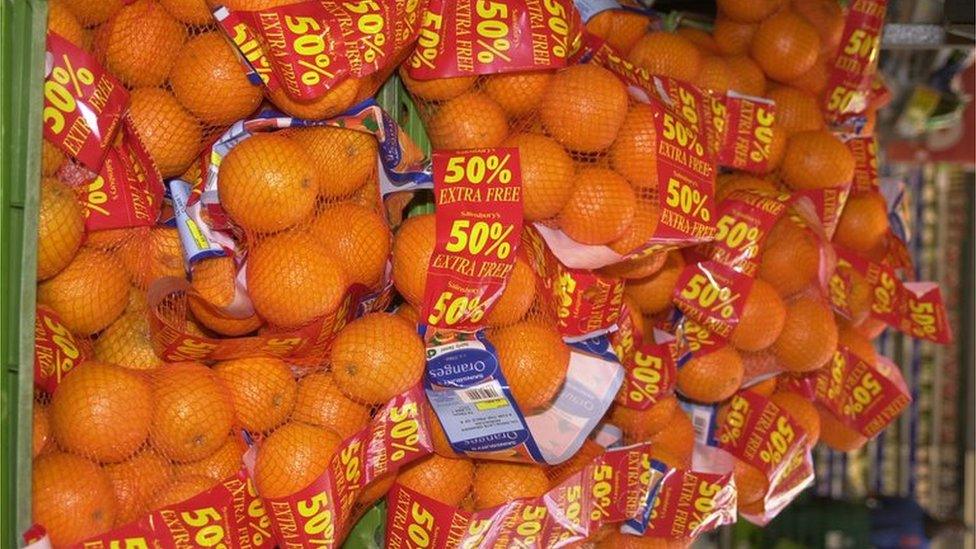
A spokesperson for Lidl said the "small sample" used in the report was not representative of the shop's product range.
"We are in the process of conducting a comprehensive review of our entire packaging footprint, and estimate that the vast majority of our packaging is widely recyclable under the industry standard OPRL (On Pack Recycling Labelling) scheme," the spokesperson added.
'Huge inconsistencies'
Which?'s investigation also criticised "huge inconsistencies" in how recyclable packaging was labelled.
For example, some items were not labelled at all while some items marked as non-recyclable could in fact be taken to supermarket recycling banks.
The report said some labels were only visible once the packaging had been removed - unhelpful to those shoppers wanting to make an environmentally-friendly choice.
Going plastic free for a week
Which? director of research and publishing, Nikki Stopford, said: "The plastic pollution crisis makes it more crucial than ever that the government, manufacturers and supermarkets do the best they can to banish plastic that cannot be recycled and promote the use of less damaging packaging."
A spokesperson for the Department of Environment, Food and Rural Affairs responded: "Recycling rates are rising, with less waste being sent to landfill, but more still needs to be done to further reduce avoidable waste and recycle more which will form part of our Resources and Waste Strategy out later this year."
- Published14 January 2018
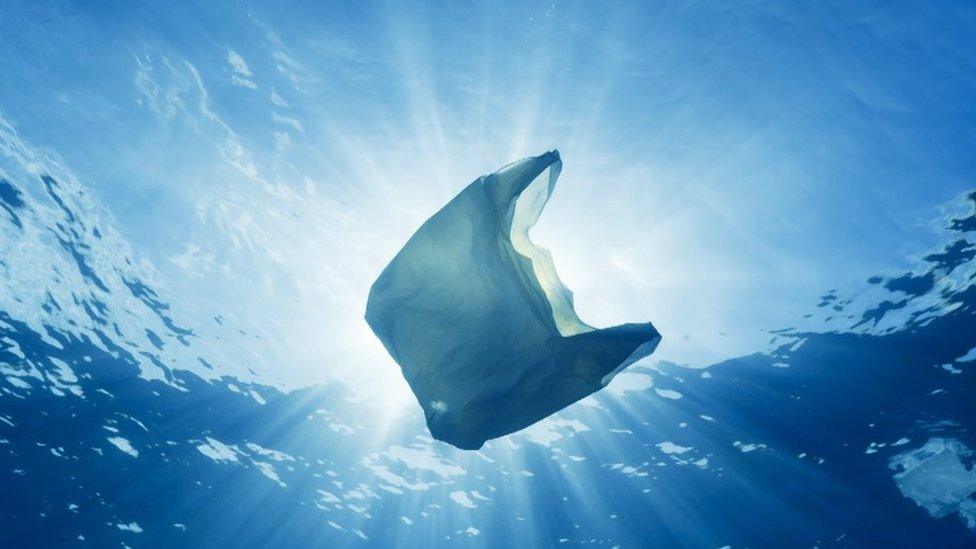
- Published26 April 2018
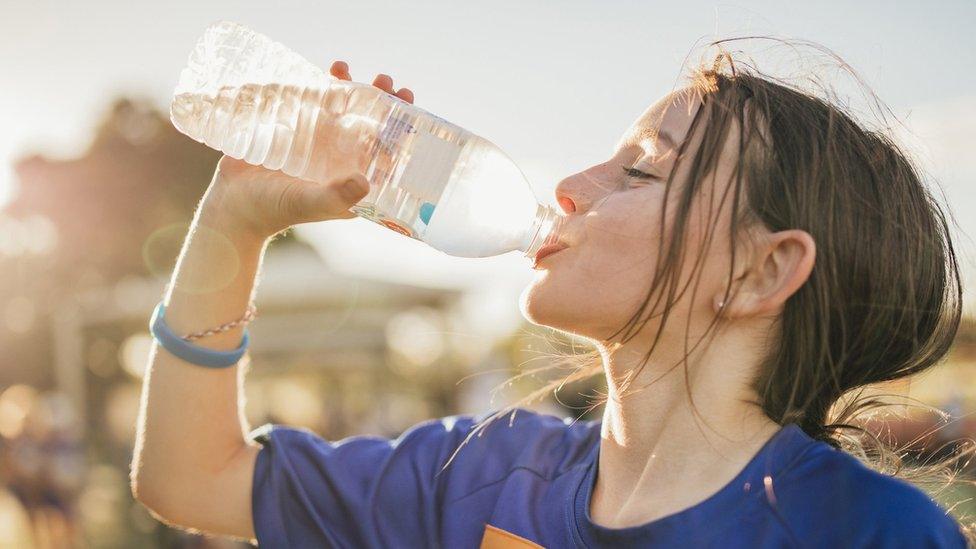
- Published25 May 2018
